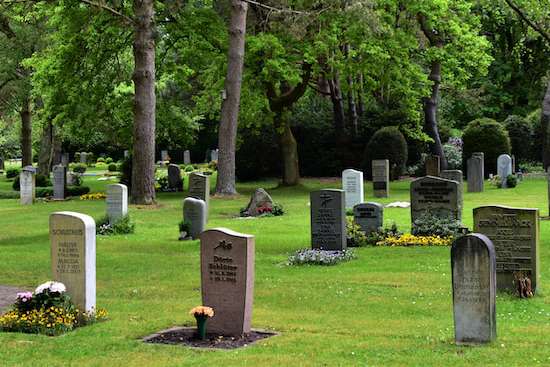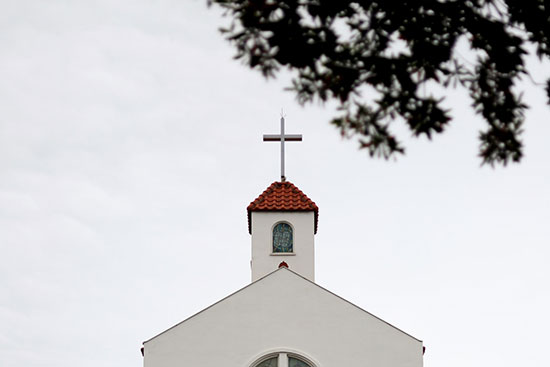As a Protestant Christian denomination, the Seventh-day Adventist Church regards the Bible as the ultimate guide and looks to Jesus Christ as the only way to salvation. We do have some differences of belief or interpretation when it comes to topics like Bible prophecy, end-time events, the Sabbath, and a person’s state after death. But this doesn’t take away from the fact that we embrace being part of the family of God, claiming Jesus Christ as our Savior. As Paul writes in Ephesians 4:4-6:
“There is one body and one Spirit—just as you were called to the one hope that belongs to your call—one Lord, one faith, one baptism, one God and Father of all” (Ephesians 4:4-6, ESV).
That family includes Baptists, Evangelicals, Pentecostals, Methodists, Episcopalians, Presbyterians, Lutherans…and anyone who sincerely seeks after God.
Even with the things that make us unique from other Protestant believers, we share the same core beliefs of Christianity—more than some might realize. In fact, Seventh-day Adventism grew out of the aftermath of the Millerite Movement of the mid-1800s, which consisted of people from many Protestant denominations, including Baptist and Methodist.
To give you the whole picture of similarities and differences, we’ll walk through some important topics in Protestantism and look at how Adventist beliefs compare with those of other denominations.
We’ll cover:
- The authority of the Bible
- Method of baptism
- Church and its purpose
- Communion
- God’s character
- Jesus’ divinity
- Salvation by faith
- Sanctuary
- A remnant of believers
- Resurrection
- Seventh-day Sabbath
- Second Coming’s timing and characteristics
- Spirit of prophecy
- State of the dead
- Trinity
And we’ll start with the foundation for all our beliefs—the Holy Bible.
The authority of the Bible

Photo by Priscilla Du Preez 🇨🇦 on Unsplash
Like other Protestants, Adventists consider the Bible to be the infallible spiritual authority for our lives. We believe that it’s the Word of God, given to us through the prophets He inspired (2 Timothy 3:16).1 Both the Old Testament and the New reveal God and His plan for our lives.
Our viewpoint can be summarized as sola scriptura, a principle central to the Protestant Reformation that positions the Bible as our guide. This means we allow its principles to guide every aspect of our lives—how we live, how we treat others, and how we regard God Himself.
Method of baptism
Adventists hold to the biblical teaching of baptism by immersion—just as Jesus was baptized in the Jordan River (Matthew 3:16).2 The apostle Paul also speaks about being “buried” in baptism, symbolizing the burial of our sinful lives and rising to a new life in Christ (Romans 6:4; Colossians 2:12).
We share this conviction with the Baptists, Pentecostals, Church of Christ, and numerous other Christian churches.
Church and its purpose
Another belief Adventists hold in common with Protestants is the concept of the body of Christ, the idea that all followers of Christ by faith are part of this group of believers (Romans 12:5; 1 Corinthians 12:12).3
Within the larger body (the worldwide church) and in smaller communities of believers (local congregations), each member receives gifts and talents from the Holy Spirit that they can use to serve.4 We support and encourage one another in our collective mission to spread the gospel (Ephesians 4:11-13).
Communion

Photo by Geda Žyvatkauskaitė on Unsplash
At the Passover meal right before His death, Jesus “took bread, and when He had given thanks, He broke it and gave it to [His disciples], saying, ‘This is My body, which is given for you. Do this in remembrance of Me.’ And likewise the cup after they had eaten, saying, ‘This cup that is poured out for you is the new covenant in My blood’” (Luke 22:19-20, ESV).
Like other Protestant churches, we take Jesus’ instructions seriously and celebrate this ceremony—sometimes called Communion or the Lord’s Supper. We serve small pieces of unleavened bread that symbolize Christ’s body and small cups of grape juice to represent His blood.5
In the Adventist Church, this service is open for anyone to participate—whether they’re members of the church or not.6
One aspect of our Communion service that might be different from that of other Protestants is that we also have a foot-washing ceremony (called the “Ordinance of Humility”) that commemorates the act of service performed by Jesus for His disciples at that same gathering (John 13).
This ceremony usually takes place at the beginning of the Communion service. Church members will gather in a fellowship hall or smaller rooms within the church, be given a small bowl of warm water and a towel, and wash one another’s feet as a symbolic act of service to one another.
God’s character
A person’s view of God shapes all their other beliefs. Though other Christians no doubt see the character of God as important, Adventists emphasize it as central to the entire plan of salvation.
This stems from our belief in the Great Controversy between Christ and Satan that began in heaven.7 Many other Christians recognize this battle between good and evil, though the idea is significantly underscored in Seventh-day Adventism and serves as the framework through which we view the Bible and the prophecies within its pages.
From the time this universal conflict entered the earth, Satan has insinuated that God is unfair, unjust, and a liar (Genesis 3:1-4).
God knew that it wouldn’t be enough to defend Himself simply by stating that these accusations are untrue. As a God of love (1 John 4:8), He desires a relationship with each of His created beings. And He knew that would only be possible with full disclosure of who He is and the freedom to choose whether or not to be in a relationship with Him.
All through the Bible’s narrative, we see God revealing Himself to His people and drawing them to Himself. But the ultimate revelation occurred on the Cross, with its perfect blend of His love and justice (Exodus 34:6).
Humans had broken God’s law of love, and God could not change the consequences for that law, since sin always leads to death (Romans 6:23). But Jesus Himself chose to absorb that penalty on behalf of all the world, experiencing complete separation from the Father.
A more loving act than this has never been done, nor can even be conceived of.
This insight about God’s character helps us understand what happens to those who choose against God. Based on our study of the Bible, we don’t believe an eternally burning hell is consistent with a God who offers us freedom of choice.
Yes, sin has consequences. But Adventists believe that the consequence is eternal death (sometimes called “annihilationism”) rather than eternal torture.8
Jesus’ divinity
Adventists concur with Protestant Christians on the full divinity of Jesus. Jesus came to this world to reveal the character of God to us, and He was able to do that perfectly because He is God.9
The Gospel writer John explains this when speaking about Jesus as the Word:
“In the beginning was the Word, and the Word was with God, and the Word was God. He was in the beginning with God. All things were made through Him, and without Him was not any thing made that was made” (John 1:1-3, ESV).
Jesus Himself also declared:
“I and the Father are one” (John 10:30, ESV).
And because of Jesus’ divinity, we believe He is also the way of salvation (John 14:6).
Salvation by faith
Salvation by faith in Jesus Christ is foundational to Protestantism all the way around.
This truth, neglected during the Dark Ages, was brought back to people’s attention by Martin Luther during the Protestant Reformation, becoming the keynote of Christianity.
George Vandeman, a renowned Adventist evangelist and author, wrote about the importance of this Lutheran belief:
“The Lutheran movement was called by God to champion a neglected truth—the glorious teaching of salvation by faith alone. Luther cleared away the cobwebs of the Dark Ages and restored the foundation of the gospel.”10
Ephesians 2:8-9 expresses this truth, making it clear that there’s nothing we can do to earn salvation ourselves.
Our role is to “believe in the Lord Jesus” and what He has done for us (Acts 16:30-31, ESV). As a result, we receive the gift of eternal life and God’s power to live the life He has called us to (Ephesians 2:10).
Sanctuary
Most Christians have some level of familiarity with the ancient Israelite sanctuary, which God instructed Moses to build (Exodus 25:8). And they recognize that God was pointing forward to Jesus’ sacrifice through the services of this sanctuary.
But Adventists have studied even deeper into the sanctuary to understand its symbolism. They see the sanctuary as a small picture of the whole plan of salvation, as the apostle Paul teaches in the book of Hebrews. It shows how God will completely deal with sin.
The animal sacrifices do indeed point to Jesus as the Lamb of Sacrifice who would take away our sins (John 1:29).
But what’s more, the sanctuary on earth represented the heavenly sanctuary, or the very throne room of God, as Hebrews 8:1-2 points out:
“We have such a high priest, one who is seated at the right hand of the throne of the Majesty in heaven, a minister in the holy places, in the true tent that the Lord set up, not man” (NKJV).
The sanctuary helps us understand Jesus’ heavenly ministry as our High Priest and Judge (Hebrews 9:23-28). Adventists connect this work of Jesus to end-time prophecies in Daniel and Revelation that describe an investigative judgment (Daniel 7:9-10, Revelation 14:7).11
A remnant of believers
The aspiration to remain true to God, even if the rest of the world turns away, is the theme of the belief about the remnant.
It is based on passages in the Bible that talk about God having a remaining (the meaning of remnant) group of people who are faithful to Him when the majority have chosen not to be.
This group has existed throughout history, but Revelation 12:17 specifically mentions it in connection with the last days:
“And the dragon was enraged with the woman [representative of God’s followers], and he went to make war with the rest of her offspring, who keep the commandments of God and have the testimony of Jesus Christ” (NKJV).
The phrase “rest of her offspring” in this passage is translated “remnant” in some versions of the Bible (such as the King James Version)—that’s where we got the term from.
Adventists believe that in the last days, there will be a remaining group of people in the world who fit these characteristics, keeping His commandments and having the testimony of Jesus Christ. They will share a special message called the Three Angels’ Messages (found in Revelation 14). This message will reveal the good news of Jesus, proclaim the judgment, and prepare people for His return.12
Though we see it as an ultimate goal to be part of this group that sticks with God, it’s not exclusive by any means. It’s open to anyone who chooses to be part of it.
Resurrection

Photo by Pisit Heng on Unsplash
Another beautiful truth that Adventists hold together with other Christians is that of the resurrection of Jesus.13 We know that without this truth, all our other beliefs would be pointless. First Corinthians 15:13-14 says:
“But if there is no resurrection of the dead, then Christ is not risen. And if Christ is not risen, then our preaching is empty and your faith is also empty” (NKJV).
This verse also brings out another important part of the Christian hope. The resurrection of Christ assures us that those who have died in Christ will also experience the resurrection at His coming (1 Thessalonians 4:16-17).
Seventh-day Sabbath
This part of the Adventist faith is found in our name, Seventh-day Adventists. Though members of other denominations may keep a “sabbath” one day of the week (or Sunday), we specifically keep the seventh day of the week as a day of rest to honor God’s work of Creation and follow His example of resting on this day (Genesis 2:2-3).
To us, it’s like a “date” with God—a special time set apart in this crazy world for building our relationship with Him and those we love.
We also keep the Sabbath because it’s part of the Ten Commandments God gave to His people (Exodus 20:8-11; Deuteronomy 5:15), providing them with structure and boundaries for healthy, loving relationships (Matthew 27:37-40).
To be clear, though, we don’t see Sabbath-keeping, or the keeping of any of the other Ten Commandments, as a means of earning salvation.
Instead, our obedience to God comes as a response to His love and gift of salvation. It’s the result of our choice to receive His grace and power.
The Second Coming’s timing and characteristics
Many Protestant churches anticipate the Second Coming of Christ, though they may hold different views about its timing.
Some believe that Jesus will come after the 1,000 years known as the millennium.
Others believe a rapture of believers will occur, followed by a time of tribulation on this earth, and then, Jesus will return at His Second Coming.
Adventists, though, look to the teaching of 1 Thessalonians 4:16-17, which details one event when Jesus comes, and all His followers rise to meet Him in the air:
“For the Lord Himself will descend from heaven with a shout, with the voice of an archangel, and with the trumpet of God. And the dead in Christ will rise first. Then we who are alive and remain shall be caught up together with them in the clouds to meet the Lord in the air. And thus we shall always be with the Lord” (NKJV).
Based on various passages in the Bible, we believe this coming will be:14
- Worldwide (Matthew 24:27)
- Glorious (Matthew 24:30)
- Visible (Revelation 1:7)
- Audible (Matthew 24:31)
- Literal (Acts 1:11)
Spirit of prophecy
Like many other Christians, we value the spiritual gifts—abilities that believers receive from the Holy Spirit to most effectively serve one another and the world. These gifts include teaching, preaching, wisdom, hospitality, and more. They are listed in New Testament passages such as Romans 12:4-8, 1 Corinthians 12:4-11, and Ephesians 4:11.
Ephesians 4:12-13 helps us to understand the purpose of these gifts. They are for:
“The equipping of the saints for the work of ministry, for the edifying of the body of Christ, till we all come to the unity of the faith and of the knowledge of the Son of God, to a perfect man, to the measure of the stature of the fullness of Christ” (NKJV).
The gift of prophecy is also included in the list of spiritual gifts in Ephesians 4, so Adventists expect this gift to be seen in our time also.
Acts 2:17 mentions this:
“And it shall come to pass in the last days, says God, that I will pour out of My Spirit on all flesh; your sons and your daughters shall prophesy, your young men shall see visions, your old men shall dream dreams” (NKJV).
Adventists believe that particularly in the end times, some among God’s followers will receive prophecies from God.15
One example is a woman named Ellen White, who passed the biblical criteria of a prophet and served as a messenger of God during the 19th century. She preached and wrote extensively, always pointing people back to Jesus and the truths of the Bible.
Her role in the Adventist Church is one major distinction between Adventists and other churches. However, we regard her just like any other prophet God has worked through and will always uphold the Bible as the ultimate authority. Scripture is used to test any claims of any prophet.
State of the dead
Another way in which Adventists differ from other Christians is our understanding of what happens to a person when they die.
Rather than believing the soul lives on after death (immediately going to either heaven or hell), we realize that we must first understand the biblical definition of soul.
Genesis 2:7 shows us that a “living soul” or “living being” consists of the body formed by God and His breath of life breathed into that body. If one of these components is missing, a person is no longer alive or aware in any way.
This death is an unconscious, sleep-like state in which the individual isn’t aware of anything (Ecclesiastes 9:5-6; John 11:11-14).16 It’s like their very existence is put on pause until the resurrection at Jesus’ return.
Trinity
Adventists share the fundamental belief of Christians in the Trinity or Godhead—that God is three in one: Father, Son, and Holy Spirit (Matthew 28:19; Jude 20-21).17 Jesus Himself spoke of the Father sending the Holy Spirit, another “Helper,” after Jesus returned to heaven (John 14:16).
This belief in the Trinity reflects the beauty of who He is—a God who exists in others-centered relationship and wants us to be part of that relationship (1 John 1:1-3).
We’re all on a journey of Christian faith

Photo by Francisco Gonzalez on Unsplash
Though Seventh-day Adventists have some different beliefs from other Protestant Christians, this doesn’t keep us from appreciating the many truths we hold in common as Bible believers.
We’re all on a journey to know God more deeply, and we don’t claim to have “arrived” at knowing everything there is to know, or understanding everything with complete accuracy. We will always be seeking to learn more and more about God and His plan.
After all, Proverbs 4:16 reminds us that “the path of the righteous is like the light of dawn, shining brighter and brighter until midday” (CSB).
As we study the Bible, we want to remain open to learning more truth God has for us. And our greatest desire is to encourage others in that journey, too.
If you’re curious to know more about Adventists,
- “What Adventists Believe About the Holy Scriptures,” Seventh-day Adventist Church. [↵]
- “What Adventists Believe About Baptism,” Seventh-day Adventist Church. [↵]
- “What Adventists Believe about the Church (Body of All Believers),” Seventh-day Adventist Church. [↵]
- “What Adventists Believe about Spiritual Gifts and Ministries,” Seventh-day Adventist Church. [↵]
- “What Adventists Believe About the Belief and Practice of the Lord’s Supper,” Seventh-day Adventist Church. [↵]
- Ibid. [↵]
- “What Adventists Believe About the Great Controversy,” Seventh-day Adventist Church. [↵]
- “What Adventists Believe About the Millennium and the End of Sin,” Seventh-day Adventist Church. [↵]
- “What Adventists Believe About God the Son,” Seventh-day Adventist Church. [↵]
- Vandeman, George, What I Like About…, p. 13. [↵]
- “What Adventists Believe About Christ’s Ministry in the Heavenly Sanctuary,” Seventh-day Adventist Church. [↵]
- “What Adventists Believe About the Remnant in the Bible,” Seventh-day Adventist Church. [↵]
- “What Adventists Believe about the Life, Death and Resurrection of Christ,” Seventh-day Adventist Church. [↵]
- “What Adventists Believe About the Second Coming,” Seventh-day Adventist Church. [↵]
- “What Adventists Believe about the Prophetic Gift,” Seventh-day Adventist Church. [↵]
- “Death, the State of the Dead, and Resurrection,” Seventh-day Adventist Church. [↵]
- “What Adventists Believe About the Trinity,” Seventh-day Adventist Church. [↵]
More Answers
What is the Role of Laypeople vs. the Role of Clergy?
The word “laity” comes from the Greek word laikos, which means “of the people.”
Do Seventh-Day Adventists Have “Rules” For Clothing?
Many religions have guidelines on dress, but what about the Adventist Church? Discover how Adventists choose to dress based on biblical principles.
11 Reasons People Become Seventh-day Adventists
Curious why many people become Adventists? Here are elements of Adventist beliefs, values, and mission often reflected in people’s decisions to join.
What’s the Seventh-day Adventist General Conference Session?
At the General Conference Session, Adventist delegates from around the world gather to assess the state of the organization, pray, and discuss current issues. Here’s how it works.
How Adventists View the End of the World
The end of the world is no fun to think about. But here’s how we can actually find hope and comfort in what’s to come.
What Is an Adventist Medical Missionary?
A medical missionary in the Adventist Church is someone who cares for the medical needs of people as a way of showing the love of Jesus. They may travel to another country, or even just serve in their hometown.
Is the Seventh-day Adventist Church Protestant?
Learn how the beliefs of the Seventh-day Adventist Church align with the “5 solas” of Protestantism.
Are Seventh-day Adventists Evangelicals?
According to its origins and definition, evangelicalism is about following Jesus and the Bible and sharing the Gospel through the way we live our lives. Adventists wholeheartedly harmonize with these principles.
Could Anything Keep Me from Becoming an Adventist?
We are each saved through Christ. But when it comes to church membership, are there certain beliefs or expectations to become an Adventist?
Do Seventh-day Adventists Have “Rules”?
We uphold principles we believe will help us maintain a closer relationship with Jesus and His Word. Learn how these principles guide Adventist lifestyles.
Do Seventh-day Adventists Have “Rules” For Marriage?
Around the world, many cultures and religions have various marriage traditions, expectations, or even rules when it comes to choosing a partner, planning the wedding, extended family logistics, or a number of other things.
Can a Seventh-day Adventist Marry a Non-Adventist?
Yes. Seventh-day Adventists are not under any official rules that dictate who they can or cannot marry. This is a personal, life-altering decision between the couple and God.
What Adventists Believe About Alcohol and Tobacco Use
The Seventh-day Adventist Church has historically discouraged the use of alcohol and tobacco. Even before the church started in 1863, its leaders were realizing the negative effects of these substances.
Jewelry—Why Do Many Seventh-day Adventists Choose Not to Wear It?
If you walk into a Seventh-day Adventist church service, you might notice that many people aren’t wearing earrings, bracelets, necklaces, or sometimes even wedding rings.
International Pathfinder Camporee
Youth aged 10-15 in the Adventist Church’s global Pathfinder program look forward to the International Camporee every 5 years. This event brings together Pathfinders from around the world for exciting activities.
How Adventists interpret Bible prophecy
Bible prophecy conjures up a variety of emotions in people. For some, it feels exciting or mysterious.
Moviegoers’ Guide to The Hopeful: The Facts Behind the Film
Learn where and when you can watch The Hopeful and how to get tickets. Already seen it? We’ll uncover the real story that inspired this film.
How Adventists Handle Death and Funerals
Most Seventh-day Adventist funeral services are similar to those of other Protestant denominations, such as Methodists, Baptists, or Presbyterians, but you might find a few differences or unique nuances.
Adventist Culture
Many Seventh-day Adventists adhere to specific lifestyle principles that can make them stand out from those in other Christian denominations. Whether it’s going to church services on Saturday or eating the popular Adventist entrée of “haystacks.”
Do Adventists Observe Easter-Related Holidays?
Jesus Christ’s resurrection, celebrated on many Easter-related holidays, is central to the beliefs of the Seventh-day Adventist Church. And that means we seek every opportunity to remember it.
An Overview of Seventh-day Adventist Higher Education
The Seventh-day Adventist Church has about 118 tertiary schools around the world. Though many of them are within North America, you’ll also find Adventist universities in countries across the world—places like Croatia, Austria, Brazil, Madagascar, and the Philippines.
The Ten Commandments from a Seventh-day Adventist Perspective
Ever eaten a salad and gotten a big piece of green stuck in your teeth? And you didn’t realize it was there until you looked in the mirror? (Because no one ever told you!)
The Benefits of A Seventh-day Adventist Academy
Adventist academies are high schools (grades 9-12) that are owned and operated by the Seventh-day Adventist Church.
Are Seventh-day Adventists Christians?
Yes, the Seventh-day Adventist Church is a Protestant Christian denomination formed in 1863. Just like other Christians, we believe that Jesus Christ is our Savior and seek to follow the principles of the Word of God.
Adventist Movies: Where Faith and Film Meet
The Adventist Church uses film to share our faith and uplift positive values. Learn more about specific Adventist-produced films and where to find them.
Do Adventists Celebrate Christmas?
In general, most Seventh-day Adventists do celebrate Christmas.
Since our denomination doesn’t have specific guidelines about holidays, it’s up to each member to decide whether to celebrate it based on their personal convictions and study of the Bible.
What Does the Bible Say About Modesty
Seventh-day Adventists and Christians in general try to ensure their outward presentation and lifestyle glorify God. This often involves daily habits like the ways we hold conversations, the ways we dress and accessorize, and the ways we regard other people when we’re out and about.
How Do Adventists Make Movie and Music Choices?
How do Adventists decide what music to listen to and which movies to watch? Learn how Bible principles can help us make better entertainment choices.
Does the Seventh-day Adventist Church Believe in Paying Tithe?
Seventh-day Adventists believe in paying tithe and offerings based on the biblical command and our commitment to being wise stewards of God’s resources. These donations help fund the mission of the Adventist Church by supporting pastors, missionaries, church expenses, and evangelistic projects, among other things.

































